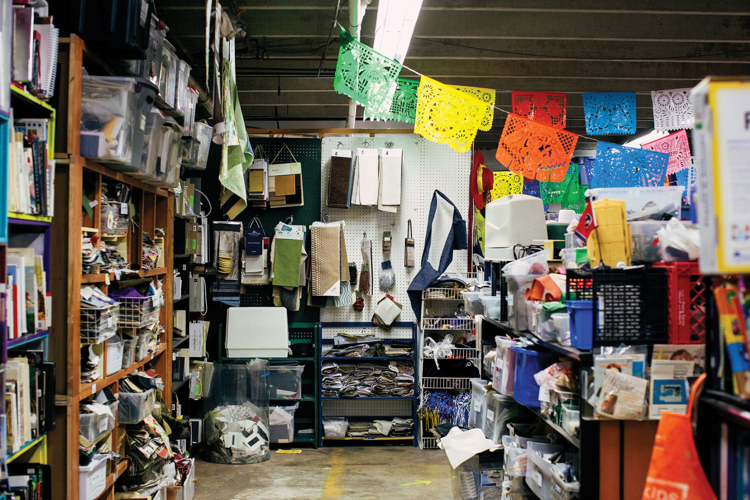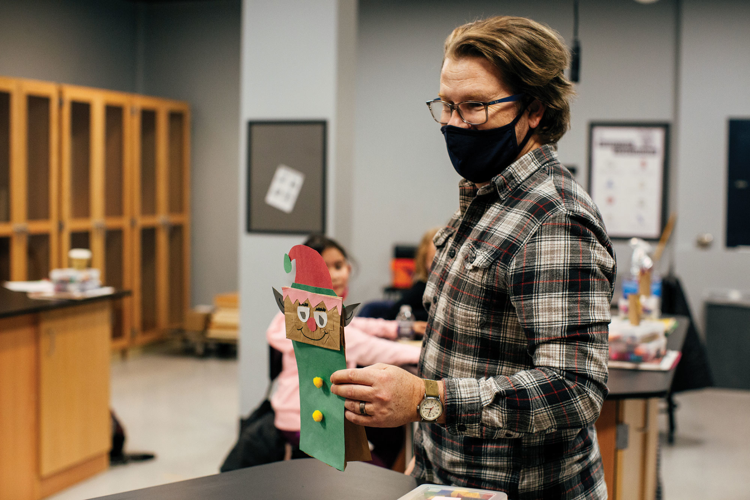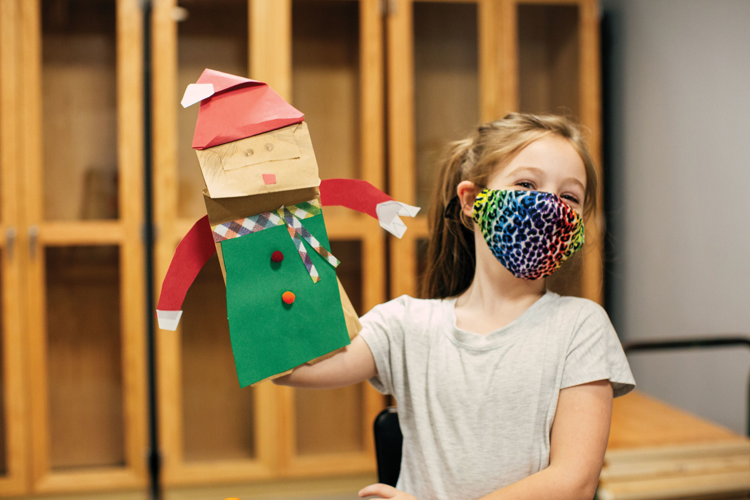
Walking into the warehouse of Turnip Green Creative Reuse provides an instant sense of the beautiful chaos that this local nonprofit so artfully embraces. Its Wedgewood-Houston headquarters stores thousands of pounds of materials that would have otherwise been discarded in the nearby landfills that are nearing capacity.
In recent years, Turnip Green has diverted tens of thousands of pounds of waste annually from Nashville’s landfills. (In 2018, for instance, the organization diverted nearly 90,000 pounds.) Upon reopening after the initial COVID-19 shutdown, they were deluged with donations like never before. “We were literally getting over 500 pounds per hour,” says executive director Leah Sherry. Warehouse visitors can find anything from used art supplies to yards of fabric, discarded wood, hardware and technology, plus myriad trinkets and oddities, all waiting for a new purpose, all available to shoppers in exchange for donations.

Turnip Sprouts
But Turnip Green is much more than a warehouse full of materials. It is, at its core, a community organization that sorts through chaos and finds opportunity in it. The many challenges of 2020 have highlighted just how dedicated Turnip Green is to its mission to foster creativity and sustainability within its community.
Beyond combating Nashville’s ever-present trash crisis, Turnip Green has been quick to respond to the more urgent disasters of 2020, like the March 3 tornado. While residents were busy processing the disaster and rebuilding their lives, Turnip Green was there, working carefully in the background to help clean up — and in the foreground too, by paying staff to join cleanup efforts.
“There’s a lot of just damaged stuff and debris that really doesn’t need to go into the landfill,” says executive director Leah Sherry. “But it’s such an emotional and traumatic experience. No one’s thinking about hauling their cellos, you know? So we actually just started advertising that and started getting a lot of tornado items.”

Education is another part of the organization’s mission. When kids weren’t able to go to school in the tornado’s aftermath, Turnip Green started distributing art kits to their families so the students could enjoy at-home activities. “Little did we know that would be what we would be doing on a larger scale,” says Sherry, “because … the next week or so it was pandemic time.”
In a normal year, Turnip Green works with a handful of Metro schools by providing affordable after-school art programs. Art supplies come from the warehouse and its longtime partner PENCIL, an organization whose mission is “linking community resources to Nashville public schools to help young people achieve academic success and prepare for life.” Once the pandemic paused in-person learning, Turnip Green mobilized to serve students safely, collaborating with Metro Nashville Public Schools, Second Harvest Food Bank of Middle Tennessee and PENCIL to distribute thousands of educational art kits, meals and school supplies to underserved children across Nashville.
Before long, working parents were in need of child care. In response, Turnip Green connected with its neighbors at the Adventure Science Center to provide space for an all-day child care program. This program, christened Turnip Sprouts, also partners with The Nashville Food Project and PENCIL to provide meals and supplies, while funds from internal campaigns, the CARES Act and the Phoenix Club of Nashville allow affordable access for low-income families. This collaboration enables children who would have otherwise been stuck at home with limited resources and supervision to leave their houses and socialize with other kids in a structured environment. They complete online learning, receive homework help, take art lessons and eat a fresh meal — all in a museum that’s full of wonders. Turnip Sprouts also provides supplies and online programming for select MNPS schools and Latinx Outreach nonprofit Conexión Américas.
Just as old jars can be turned into terrariums and egg cartons into miniature helicopters — two of the art lessons you’ll find on Turnip Green’s YouTube channel — the organization shows us how a nonprofit can reimagine itself to fit the needs of its community. Its employees are experts in making sense of messes and using them to create something productive, and an emphasis on collaboration allows its network of local organizations to grow alongside one another.
“It’s been just a cool challenge to be able to see [that] we can be many different things and we can shift and grow,” says Erin Boddy, who oversees programming for Turnip Green. “And we have a lot of creative, passionate people on our team that really care about the community and want to be able to do what they can and do their share.”







